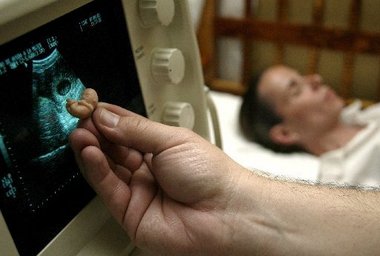On 2 November of this year, the Ministry of Health has concluded a contract with “Republican Institute of Perinatology, Obstetrics and Gynecology” CJSC for the services to prevent unwanted pregnancies.
The price of the contract is 45 million 820 thousand AMD (about 96.5 thousand USD). The deadline for providing the services is until the end of this year on 25 December. The funds under the contract are allocated from the state budget.
From the document on the purchase we learn that the agreement includes providing free contraceptive by the state in order to prevent unwanted pregnancies, together with the services of carrying out necessary examinations for the provision of contraceptive for eligible people. These services will particularly include:
1. Acquisition, maintenance and supply of contraceptive. 2. Consultation on the use of contraceptive. 3. Carrying out necessary examinations to provide contraceptive. 4. Implementation of monitoring to prevent unwanted pregnancies.
“The performer is obliged to provide the client a report on the circulation of contraceptive,” reads the document on the purchase.
The Part of “Maternal and Infant Health Care State Target Program” of Appendix Protocol on 25 September 2014 reads that it is intended to realize measures of preventing unwanted pregnancies, reducing abortions, disseminating contemporary methods of planning and effective means of contraception.
We learn from the same document that in 2015 it is planned to realize a program supported by the US Agency for International Development (USAID) to make affordable contemporary birth control pills for the prevention of unwanted pregnancies. The involvement of the project is due to amendment No. 4 on 27 September 2013 to Assistance Agreement between the RA Government and USAID to improve efficiency of health care and social services. According to the amendment the RA Government has undertaken the obligation to purchase modern contraceptives.
As it is already known these services for the prevention of unwanted pregnancy are free of charge. We tried to learn from the Ministry of Health who can benefit from these free services. The Public Relations Service of the Ministry suggested calling the appropriate phone number and talking to the head of the department of Maternal and Reproductive Health Care Gayane Avagyan in order to receive the information. But Gayane Avagyan stated that she has no right to provide information by phone and in order to get the information we should apply to them in a written form or receive it through the Public Relations department of the Ministry.
Specifically, for Gayane Avagyan we quote Article 9 (part 6) of the Law on “Freedom of Information”, pursuant to which she is obliged to answer to the oral inquiry: “The answer to the oral inquiry is given immediately after listening to the inquiry or within the shortest possible time frame.”

































